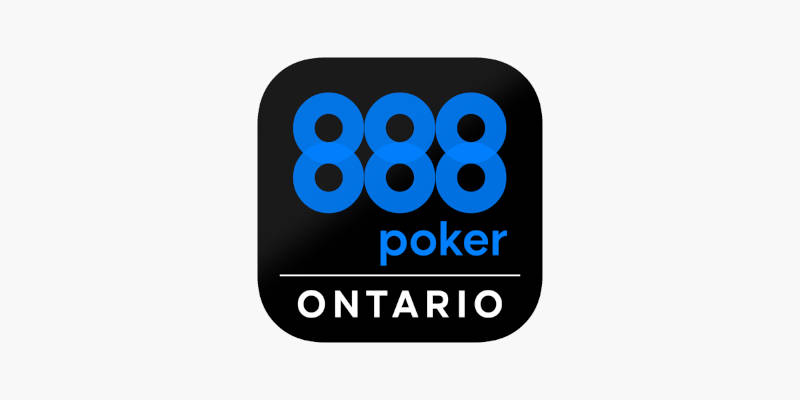In the first part of this
SPECIAL INFOPLAY about the reality of online gambling in Canada, we briefly reviewed the history of gambling in the country, both land-based and online, and ended up with a list of current regulations and laws that serve as the foundation for the sector's regulation.
Today, we will focus on
Ontario, the province that has become a success story that not only other Canadian provinces want to emulate but also markets in the process of regulation, such as the United States, Latin American, and European countries.
Regarding the success of gambling regulation in Ontario:
As we have seen, only provinces and territories in Canada can regulate gambling activities for money. Some provinces, like British Columbia or Quebec, decided to operate with their own brands, primarily focusing on lottery products.
Ontario followed a similar approach during its early years of regulation. However, the momentary "state monopoly" through the PlayOLG website was not the final objective of the project. It was a consequence of the inability to fully regulate sports betting (which wasn't fully legalized until August 2021 with the Senate's authorization for single-betting on individual events).
Unlike other provinces where unclear regulation allowed illegal operators to enter the market and local players fled to unregulated markets, Ontario's steps taken from 2021 onward have completed a process that can be internationally recognized and serve as a benchmark for many regulated markets in the United States that are still in the implementation process.
Let's review the reasons explaining Ontario's success as a regulated gambling market:
- A large population with a strong economy:
Canada has a population of around 38 million, with over 15 million residing in Ontario, the most populous province that contributes 39% of the country's GDP. As a result, Ontario is Canada's most important gambling market, leading the province to take the regulation process, announced in 2019 and carried out during 2022, very seriously.
Doug Ford, an entrepreneur and politician who has held the position of Premier of the province since 2018, played a crucial role in deciding to go against the tide and avoid a closed market, which had been in place since 2011. Since taking office, the new conservative government of Ontario, led by Doug Ford, focused on reviving the economy based on a free market, which aligned with the need to open the online gambling market to foreign operators.
The success of gambling regulation in Ontario can be attributed to its phased approach. The Alcohol and Gaming Commission of Ontario (AGCO) was the second province in the country to adopt online gambling through a lottery and casino games website under the brand PlayOLG. Quebec's Espacejeux followed suit, operating as a monopoly similar to OLG's past role in Ontario.
In 2015, PlayOLG launched the first version of its website offering lottery and casino games, which allowed Ontario to establish a solid customer base as the only operator in the online gambling industry that could be promoted. This project benefited from the budget of a Modernization Plan initiated in 2012 with a six-year outlook to completely overhaul the land-based and online gambling offerings in the country. Measures included removing slots and video lottery terminals from racetracks and centralizing them in gaming lounges.
- Creating an attractive market for foreign investment:
Ontario's success in gambling regulation can be attributed to the expansion to private operators in 2022 through the implementation of the Ontario Lottery and Gaming Corporation’s (OLG’s) Modernization Plan. In 2021, Canada decided to lift the historical ban on single sports betting. Immediately, Ontario announced plans to open its online gambling market to private operators, potentially leading to increased competition and a better gaming experience for users, leaving behind the monopoly era of PlayOLG.
Additionally, incorporating grace periods and demonstrating flexibility in regulation allowed new operators to establish themselves temporarily in a gray market. However, unlike in Brazil, this did not affect the arriving operators in any way or give a competitive advantage to existing ones.
In addition to population, industry modernity, the global offline-online strategy, or the shift from a monopoly to opening up to international operators, Ontario's success is clearly attributed to the decision by Doug Ford's conservative government to set an annual tax rate of only 20%, which is one of the lowest in the world. This has made Ontario attractive to international gaming operators.
In fact, brands like 888.com, Bwin, or Unibet have prioritized this market, as detailed in their latest Annual Plans and Financial Reports. The results have been evident, with Ontario becoming a profitable jurisdiction with increasing importance in their budgets.
All of this mentioned above has made it possible for Ontario to be considered today a dynamic and rapidly growing market, with more than 1.6 million monthly active players and more than 40 licensed operators.
Analysis of the online gambling market in 2023
After witnessing the excellent results achieved by international operators in their first year in the Ontario market, it's time to present the general characteristics observed in the online gambling market in Canada:
- The first point to highlight is that despite the autonomy of provinces in regulating gambling, the market is homogeneous in essential aspects for the industry and regulators. While the legal age may vary in some provinces, the legal and tax framework is generally consistent.
- Provincial governments have established robust regulatory schemes in which all companies involved in the sector must be registered and supervised by the authorities. Instead of using the term "license," the laws usually refer to "registration" because the objective is not only to have operators but also to monitor companies providing gaming services, including casinos, marketing companies, and even dealers.
- It's crucial to note that the success of the online market in Canada is built upon the strength of the land-based sector, where physical casinos are legal in most provinces and territories. These casinos have partnered with online projects without facing obligations and restrictions seen in numerous jurisdictions like Argentina or some US states. The regulation of Video Lottery Terminals (VLTs) and slot machines has also been effectively managed, thanks to their previous experience as regulated products by provincial and territorial gaming authorities at the land-based level.
- Unlike some regulated markets like Spain, where professional poker players had difficulties continuing their activity once it was legalized, most provinces in Canada do not impose explicit taxation on gambling winnings. This has reinforced campaigns to attract and retain players even professionals and even led some American poker players to stay in Canada after the abrupt closure of platforms like Full Tilt Poker and Poker Stars in the US following Black Friday in 2011.
- Technical issues have been addressed smoothly and without controversy. Unlike problems observed in Buenos Aires, Argentina, with accessing gambling sites from different jurisdictions, Canada has opted for redirecting users to the dot-com version of the operator, ensuring compliance with regulatory standards of the territory.
- With the authorization of individual sports and horse betting and the end of the era of "parlay bets" as the sole form of sports and horse racing betting, Canada's online gambling market is now fully open and free from limiting rules present in other countries.
- There is a clear regulatory framework concerning Responsible Gambling, Advertising, and Commercial Communications. The restrictions on advertising bonuses or targeting the general public apply not only to operators but also to affiliates and communication platforms. However, sanctions would fall on the operators, ensuring their compliance.
- International liquidity does not exist, and the policy remains in place to restrict poker players, exchange bettors, and daily fantasy game enthusiasts from sharing platforms with players from other countries. While these games are fully legal in most provinces, they are kept isolated to compete exclusively within their own player pools.
- The model followed is that of the Ontario province, and the process of opening up to international operators has been followed by the majority of provinces, with the rest in progress. Provincial public operators like Espacejeux (owned by Loto-Québec) or PlayNow.com (owned by the British Columbia Lottery Corporation) now compete with private companies and brands. Nevertheless, most provinces still have their own operators, such as Play Alberta in the province of Alberta.
- Safety is paramount, as both Ontario and most provinces have implemented sophisticated rules to prevent fraud, money laundering, and terrorism financing. The new framework based on the Ontario model requires operators to verify players' identities when creating an account.
In summary, the success of Ontario and Canada, in general, has allowed the province to benefit significantly from more players choosing to play locally rather than in the gray market. Players appreciate knowing that strict measures are in place to protect their finances and personal information.
18+ | Juegoseguro.es – Jugarbien.es





